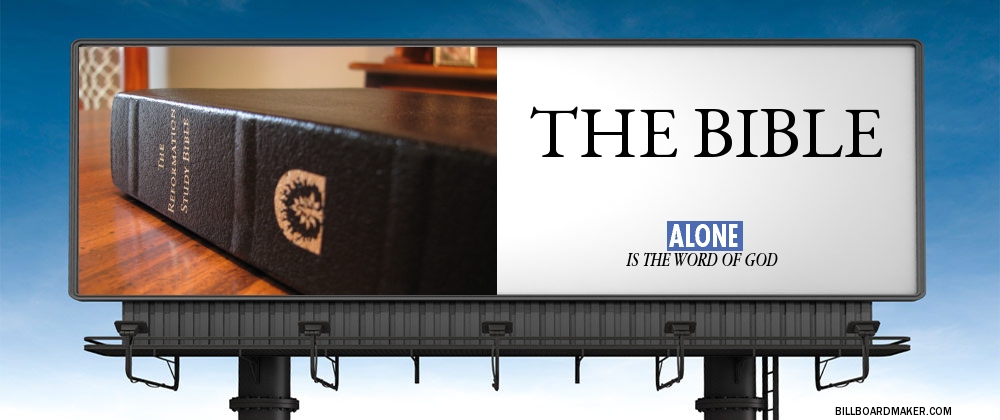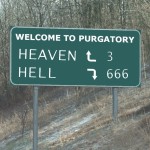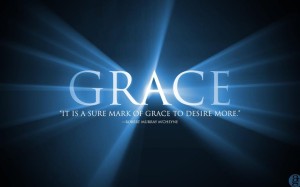 “The nature of the Divine goodness is not only to open to those who knock. but also to cause them to knock and ask.”- Augustine
“The nature of the Divine goodness is not only to open to those who knock. but also to cause them to knock and ask.”- Augustine
“The best of men are only men at their very best. Patriarchs, prophets, and apostles, – martyrs, fathers, reformers, puritans, – all are sinners, who need a Savior: holy, useful, honorable in their place – but sinners after all.” – J.C. Ryle
“O that I could do more for Him! O that I was a flame of pure and holy fire and had a thousand lives to spend in the dear Redeemer’s Service. The sight of so many perishing souls affects me much and makes me long to go if possible from pole to pole, to proclaim redeeming love.” – George Whitefield
“It has been rightly said that the greatest joy is knowing Christ and the second greatest is making Him known.” – Steven Lawson
“By definition, the big difference between mercy and justice, is that mercy is never, never, never, obligatory.” – R.C. Sproul
“By taking upon Himself the punishment of our sins demanded by the Law, the Lord Jesus Christ was establishing the Law.” Martyn Lloyd-Jones (Romans – Atonement And Justification)
“He who believes the truth enters on the enjoyment of a happiness which is of the same nature, and springs from the same sources, as the happiness of God. Jehovah rests and rejoices in the manifestation made of His all-perfect character in the person and work of Jesus Christ. And he who believes enters into this rest and participates in this joy.” – John Brown, An Exposition of the Epistle to the Hebrews (Edinburgh, 1862), I:210.
“Heaven would be hell to me without Christ.” – Thomas Goodwin
“Without God upholding the universe from moment to moment, nothing could continue to be.” – R.C. Sproul
“…the whole counsel of God must be proclaimed by men who are clothed in humility, bathed in tears, and who have endured through difficult trials.” – Rick Gamble
“Men are afraid to have good thoughts of God. They think it is a boldness to eye God as good, gracious, tender, kind, loving. I speak of saints. They can judge him hard, austere, severe, almost implacable, and fierce (the very worst affections of the very worst of men, and most hated by God). Is not this soul-deceit from Satan? Was it not his design from the beginning to inject such thoughts of God? Assure yourself, then, there is nothing more acceptable to the Father than for us to keep up our hearts unto him as the eternal fountain of all that rich grace which flows out to sinners in the blood of Jesus.” – John Owen, Works (Edinburgh, 1980), II:35. Slightly updated.
“A Christian is distinguished by his conversation. He will often trim a sentence where others would have made it far more luxuriant by a jest which was not altogether clean. If he would have a jest, he picks the mirth but leaves the sin; his conversation is not used to levity; it is not mere froth, but it ministers grace to the hearers. He has learned where the salt-box is kept in God’s great house, and so his speech is always seasoned with it, so that it may do no hurt but much good. Oh! commend me to the man who talks like Jesus, who will not for the world suffer corrupt communications to come out of his mouth. I know what people will say of you if you are like this: they will say you are straight-laced, and that you will not throw much life into company. Others will call you mean-spirited. Oh, my brethren! bold-hearted men are always called mean-spirited by cowards. They will admonish you not to be singular, but you can tell them that it is no folly to be singular, when to be singular is to be right. I know they will say you deny yourselves a great deal, but you will remind them that it is no denial to you.” – Charles Haddon Spurgeon, The Clean and the Unclean, 1863.
“The Lord knows very well that you cannot change your own heart and cannot cleanse your own nature. However, He also knows that he can do both. Hear this and be astonished. He can create you a second time. He can cause you to be born again.” – C. H. Spurgeon
“The true way of salvation can be summed up like this: it is entirely the result of God’s election. There is only one explanation of why any single person has ever been saved, and it is the action and the choice of God. There is nothing in us that contributes to salvation – nothing at al!” – Martyn Lloyd-Jones (Romans – Saving Faith)
“Satan can do only what the sovereign God allows him to do.” – R.C. Sproul
“Pray that I may be very little in my own eyes, and not rob my dear Master of any part of his glory.” – George Whitefield
“The greatest danger to the pilgrim is growing to love something, anything, more than one loves the celestial city.” – Voddie Baucham
 Justin Taylor writes: The word inerrant means that something, usually a text, is “without error.” The word infallible—in its lexical meaning, though not necessarily in theological discussions due to Rogers and McKim—is technically a stronger word, meaning that the text is not only “without error” but “incapable of error.” The historic Christian teaching is that the Bible is both inerrant and infallible. It is without error (inerrant) because it is impossible for it to have errors (infallible).
Justin Taylor writes: The word inerrant means that something, usually a text, is “without error.” The word infallible—in its lexical meaning, though not necessarily in theological discussions due to Rogers and McKim—is technically a stronger word, meaning that the text is not only “without error” but “incapable of error.” The historic Christian teaching is that the Bible is both inerrant and infallible. It is without error (inerrant) because it is impossible for it to have errors (infallible).



